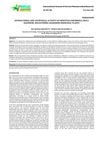 98 citations,
October 2012 in “Dermatologic Clinics”
98 citations,
October 2012 in “Dermatologic Clinics” Eating the right nutrients can improve hair health, but taking extra supplements usually doesn't help unless you have a deficiency.
[object Object]  47 citations,
December 2006 in “Therapy”
47 citations,
December 2006 in “Therapy” The dietary supplement helped increase hair growth in women with hair loss.
 February 2024 in “Scientific Reports”
February 2024 in “Scientific Reports” Topical minoxidil and dietary supplements improved hair regrowth in children with hair loss from chemotherapy.
 9 citations,
September 2018 in “Journal of Photochemistry and Photobiology B-biology”
9 citations,
September 2018 in “Journal of Photochemistry and Photobiology B-biology” A hair-growth formula with cystine and thiamin helps protect skin cells against UV damage and improves their growth.
 9 citations,
September 2018 in “Clinical, Cosmetic and Investigational Dermatology”
9 citations,
September 2018 in “Clinical, Cosmetic and Investigational Dermatology” One supplement improved hair loss and quality faster and more effectively than the other in treating telogen effluvium.
 126 citations,
January 2009 in “International Journal of Trichology”
126 citations,
January 2009 in “International Journal of Trichology” Oxidative stress contributes to hair graying and loss as we age.
 79 citations,
January 2017 in “Dermatology practical & conceptual”
79 citations,
January 2017 in “Dermatology practical & conceptual” Correcting nutrient deficiencies may help with hair loss, but the benefits of supplements without a deficiency are uncertain and could be harmful.
 45 citations,
March 2010 in “Journal der Deutschen Dermatologischen Gesellschaft”
45 citations,
March 2010 in “Journal der Deutschen Dermatologischen Gesellschaft” A systematic approach is crucial for managing hair loss in women.
 40 citations,
August 2018 in “Skin appendage disorders”
40 citations,
August 2018 in “Skin appendage disorders” Some alternative treatments for hair loss might work, but more research is needed.
 23 citations,
January 2013 in “Indian Journal of Dermatology, Venereology and Leprology”
23 citations,
January 2013 in “Indian Journal of Dermatology, Venereology and Leprology” FPHL causes hair loss in women due to genetics and hormones; minoxidil and anti-androgens are treatments, and early intervention is advised.
 21 citations,
May 2016 in “The Cochrane library”
21 citations,
May 2016 in “The Cochrane library” Topical minoxidil helps treat female pattern hair loss, but more research needed for other treatments.
 19 citations,
January 2015 in “Current problems in dermatology”
19 citations,
January 2015 in “Current problems in dermatology” Ultraviolet rays damage hair, smoking may cause hair loss, and good nutrition is important for hair health, but genetics mainly decide hair thickness.
 13 citations,
January 2016 in “Journal of cosmetology & trichology”
13 citations,
January 2016 in “Journal of cosmetology & trichology” Alternative treatments show promise for hair growth beyond traditional methods.
[object Object]  1 citations,
January 2015 in “Springer eBooks”
1 citations,
January 2015 in “Springer eBooks” AGA is a common hair loss disorder, and early diagnosis and treatment with minoxidil or finasteride can help reduce emotional distress.
 1 citations,
September 2013 in “Elsevier eBooks”
1 citations,
September 2013 in “Elsevier eBooks” Hair ages and thins due to factors like inflammation and stress, and treatments like antioxidants and hormones might improve hair health.
 1 citations,
January 2010 in “Springer eBooks”
1 citations,
January 2010 in “Springer eBooks” Certain micronutrients may improve hair and nail health, but more research is needed to confirm their benefits.
 September 2024 in “International Journal of Research and Review”
September 2024 in “International Journal of Research and Review” Wiesbaden 30C effectively reduces hair fall and improves hair growth in young adults with Telogen Effluvium.
 April 2024 in “Dermatovenerologiâ, kosmetologiâ”
April 2024 in “Dermatovenerologiâ, kosmetologiâ” Telogen effluvium is a common hair loss condition that can be managed with proper treatment and addressing underlying issues.
 February 2021 in “Journal of pharmaceutical and biological sciences”
February 2021 in “Journal of pharmaceutical and biological sciences” No cure exists for alopecia areata, and treatments are personalized.
 7 citations,
May 2022 in “The Journal of Dermatology”
7 citations,
May 2022 in “The Journal of Dermatology” Hair loss is a frequent long-term effect of COVID-19, and oral minoxidil is the most common effective treatment.
3 citations,
November 2022 in “Molecules/Molecules online/Molecules annual” The substances improved hair regrowth and protected hair cells in humans and mice.
 3 citations,
January 2019 in “International Journal of Trichology”
3 citations,
January 2019 in “International Journal of Trichology” The article concludes that treating hair loss requires careful research, understanding the causes, and personalized treatment plans.
 17 citations,
January 2019 in “Journal of cancer”
17 citations,
January 2019 in “Journal of cancer” The formula YH0618 can reduce the harmful side effects of the chemotherapy drug Doxorubicin and protect healthy cells.
 17 citations,
March 2020 in “Frontiers in Chemistry”
17 citations,
March 2020 in “Frontiers in Chemistry” Compounds from the plant Mammea siamensis may help treat hair loss.
 24 citations,
August 2018 in “Journal of Ayurvedic and herbal medicine”
24 citations,
August 2018 in “Journal of Ayurvedic and herbal medicine” Hibiscus rosa-sinensis may help treat various health issues and promote hair growth, but more research is needed for safety.
 11 citations,
July 2020 in “International Journal of Ayurvedic Medicine”
11 citations,
July 2020 in “International Journal of Ayurvedic Medicine” Indigofera tinctoria leaf extract has many compounds that support its traditional medicinal uses.
 1 citations,
March 2019 in “International Journal of Current Pharmaceutical Research”
1 citations,
March 2019 in “International Journal of Current Pharmaceutical Research” The essential oils from Hedyotis corymbosa, Inula racemose, and Holostemma adakodien have significant antibacterial and antifungal properties.
 6 citations,
May 2018 in “Plant Cell, Tissue and Organ Culture (PCTOC)”
6 citations,
May 2018 in “Plant Cell, Tissue and Organ Culture (PCTOC)” Adding yeast extract and methyl jasmonate to Eclipta alba cell cultures increased the production of the compound wedelolactone.
 57 citations,
October 2021 in “Journal of ethnopharmacology”
57 citations,
October 2021 in “Journal of ethnopharmacology” Indian herbal medicine shows promise for treating skin diseases but needs more research to prove effectiveness.
 November 2023 in “Deleted Journal”
November 2023 in “Deleted Journal” Cedrus libani has potential medicinal uses but needs more safety studies.





























